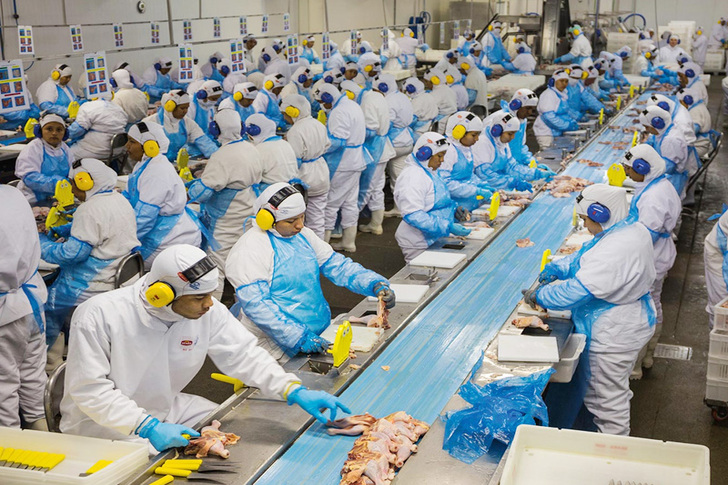Preparing for an Automated World: 10 Jobs That AI Could Take Over
The rise of artificial intelligence (AI) is transforming various industries, leading to significant changes in the job market. While AI can enhance efficiency and productivity, it also poses a threat to certain job roles that are highly repetitive or data-driven. In this guide, we explore ten jobs that AI could potentially take over in the near future. Understanding these changes can help individuals and businesses prepare for an automated world.
1Retail Cashiers
0 votes

Retail cashiers handle transactions at points of sale in stores and supermarkets. With the rise of self-checkout systems and AI-driven payment technologies, the role of cashiers is becoming increasingly automated. AI systems can process payments, apply discounts, and handle various payment methods without human assistance. These technologies not only speed up the checkout process but also reduce labor costs for retailers. As more businesses adopt these automated systems, the demand for human cashiers is expected to decline. Retail workers may need to transition to roles that focus on customer service, inventory management, and maintaining the overall shopping experience.
0
Do you agree? 0% of people agree with your point of view!
2Paralegals and Legal Assistants
0 votes

Paralegals and legal assistants perform tasks such as legal research, document preparation, and case management. AI technology can automate many of these tasks by quickly analyzing large volumes of legal documents and extracting relevant information. AI-powered legal research tools can provide accurate and comprehensive results faster than human researchers. Document automation software can generate standard legal documents, reducing the need for manual drafting. As AI continues to advance, it can take over more complex legal tasks, reducing the demand for paralegals and legal assistants. Professionals in the legal field may need to focus on higher-level tasks that require critical thinking, client interaction, and strategic planning.
0
Do you agree? 0% of people agree with your point of view!
3Data Entry Clerks
0 votes

Data entry clerks are responsible for inputting, updating, and maintaining information in computer systems and databases. This role often involves repetitive tasks that require a high degree of accuracy. AI and machine learning technologies can easily automate these tasks by quickly and accurately processing large volumes of data. AI systems can learn to recognize patterns and discrepancies, reducing the need for human intervention. As businesses strive to improve efficiency and reduce costs, the demand for data entry clerks is expected to decline. Individuals in this field may need to acquire new skills and adapt to more strategic roles that involve managing and interpreting data rather than merely inputting it.
0
Do you agree? 0% of people agree with your point of view!
4Manufacturing and Assembly Line Workers
0 votes

Manufacturing and assembly line workers perform repetitive tasks that involve assembling products or components. Automation and robotics have already transformed many manufacturing processes, and AI is set to further enhance these capabilities. AI-powered robots can work with greater precision and efficiency than human workers, reducing errors and increasing productivity. These robots can also operate continuously without breaks, further boosting output. As more manufacturers adopt AI and robotic technologies, the demand for human workers in these roles is expected to decline. Workers in the manufacturing sector may need to focus on roles that involve overseeing, programming, and maintaining automated systems.
0
Do you agree? 0% of people agree with your point of view!
5Customer Service Representatives
0 votes

Customer service representatives handle inquiries, complaints, and provide information about products and services. With advancements in natural language processing and chatbots, AI can now manage many customer service tasks efficiently. AI-powered chatbots can handle routine inquiries, provide instant responses, and operate 24/7, offering a level of service that human representatives may not be able to match. As AI technology continues to improve, it can manage more complex customer interactions, reducing the need for human representatives. While AI can enhance customer service efficiency, it is essential for businesses to balance automation with human empathy and problem-solving skills for more nuanced issues.
0
Do you agree? 0% of people agree with your point of view!
6Telemarketers
0 votes

Telemarketing involves contacting potential customers to sell products or services over the phone. This role is highly repetitive and can be easily automated by AI. AI-driven systems can make calls, deliver scripted messages, and handle responses without the need for human intervention. These systems can analyze customer data to target potential leads more effectively, increasing the chances of successful sales. As AI technology becomes more sophisticated, it can handle more complex sales interactions, further reducing the need for human telemarketers. Individuals in this field may need to shift towards more strategic roles in marketing and sales that involve personal interaction and relationship building.
0
Do you agree? 0% of people agree with your point of view!







Recent Comments